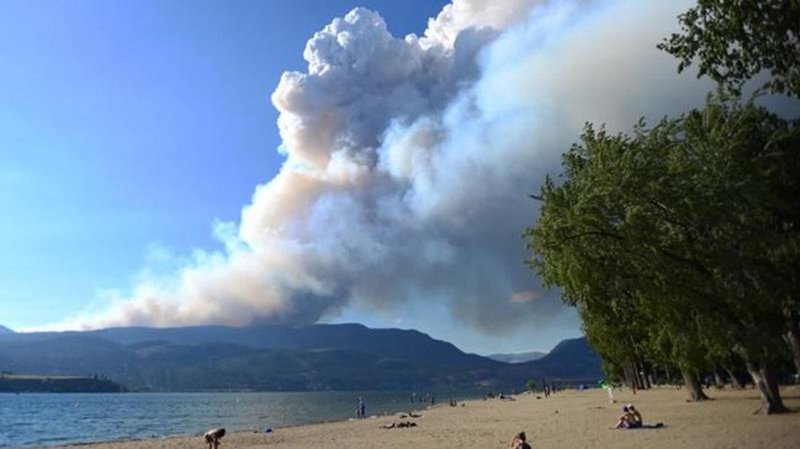
Two key fires in Okanagan, B.C., are under control, but winds pose challenge to north
KELOWNA, B.C. — Two of the three fires making up a devastating wildfire complex that destroyed almost 200 homes around Lake Okanagan in the B.C. Interior are now under control.
But the BC Wildfire Service says the region’s most destructive fire, the McDougall Creek blaze in West Kelowna, continues to defy suppression efforts.
The three fires make up the Grouse fire complex that forced thousands of people to evacuate and has been a key front in B.C.’s worst wildfire season on record since the McDougall Creek fire swept down on West Kelowna on Aug. 17, setting neighbourhoods ablaze.
The Lake Country and Clifton-McKinley fires on the east side of Lake Okanagan then sprang into life, threatening the City of Kelowna and properties to the north.
